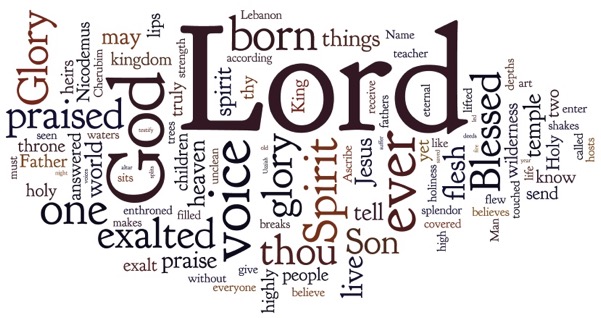Trinity Sunday
Rectors sometimes joke about burdening their curates with preaching on Trinity Sunday, and their caution about the doctrine is understandable. For any priest serving among the argumentative, or those who like to slice their theology as thin as see-through cold cuts, preaching on the Trinity has the appeal of searching for unexploded land mines while on holiday.
It need not be so. In their wisdom, those who have prepared the lectionary did not focus this week’s readings on building a piecemeal case for the Trinity. The consistent theme of this day’s readings is the glory of God: a glory so deep and so rich that even the exalted poetry of Psalm 29 only scratches the surface. Wise theologians have said before that we will spend the rest of eternity learning about God and never exhausting the topic, because God is infinite and we are not.
| Isa. 6:1-8 • Ps. 29 or Cant. 2 or Cant. 13 Rom. 8:12-17 • John 3:1-17 |
Some members of anti-Trinity groups believe the doctrine is groundless because the word Trinity does not appear in Scripture. Like so many arguments from silence, this one obfuscates rather than shedding light. An appropriate response would invite a non-trinitarian to explain the identity and the roles of Jesus Christ and the Holy Spirit. An honest answer to that invitation will soon enough bring traditional heresies or modern riffs to the surface: Jesus is the highest expression of human life; the Holy Spirit is an impersonal force, like electricity; perhaps even God the Father began as a man, with a body and desires and children.
Christians do well not merely to acknowledge but even to rejoice in this foundational doctrine that is implicit, one that requires exercising the brain for something more than memorizing a quick answer from a catechism. Each person of the Trinity merits the adoration expressed in Psalm 29, and for different reasons. Each person of the Trinity deserves sung praise, as reflected in any Christian hymnal worthy of the name.
Christians, too, do well to engage the texts of this day’s epistle and gospel readings. Why do the Book of Romans and the Gospel of John capitalize Spirit and describe a person, one who guides us in our sanctification and prompts us to call God by the affectionate nickname used by children? How does the Spirit play such an important role in our mystical rebirth, if he is reduced to an it or the bonhomie that emerges when like-minded religious people gather together?
If we never converse with the Spirit, if we are never concerned about making grievous choices, what does this say of our relation to the other persons of the Trinity? Does something about the Holy Spirit frighten us? Do we kid ourselves that we can tame the wind of Pentecost and the one who emboldened the early Christian martyrs?
Look It Up
Read John 14:15-26.
Think About It
Do you find one person of the Trinity more accessible than the others?
 TLC on Facebook ¶ TLC on Twitter ¶ TLC’s feed ¶ TLC’s weblog, Covenant ¶ Subscribe
TLC on Facebook ¶ TLC on Twitter ¶ TLC’s feed ¶ TLC’s weblog, Covenant ¶ Subscribe









